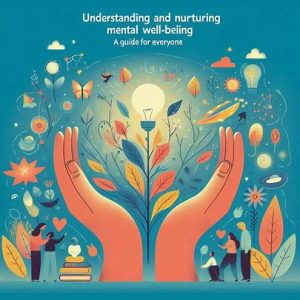Introduction
In today’s fast-paced world, stress has become an almost universal experience. From demanding work schedules to personal responsibilities, the pressures of modern life can feel overwhelming. While some stress can motivate us to achieve goals, chronic stress can harm both mental and physical health, leading to issues like anxiety, depression, and heart disease. Fortunately, effective stress management techniques can help individuals regain control, improve well-being, and lead more balanced lives. This article explores the science of stress, practical strategies for managing it, and the latest trends in stress management, offering actionable advice for a general audience.
Understanding Stress
What Is Stress?
Stress is the body’s natural response to perceived challenges or threats. When faced with a stressor—such as a tight deadline or a personal conflict—the brain triggers the release of hormones like cortisol and adrenaline. These hormones prepare the body for a “fight or flight” response, increasing heart rate and sharpening focus. While this response can be lifesaving in acute situations, prolonged activation can lead to physical and emotional exhaustion.
The Impact of Chronic Stress
Chronic stress affects nearly every system in the body. Physically, it can contribute to headaches, high blood pressure, and weakened immunity. Mentally, it may cause irritability, difficulty concentrating, and sleep disturbances. For example, a 2023 study from the American Psychological Association found that 76% of adults reported experiencing health issues due to stress, including fatigue and anxiety. Left unmanaged, stress can also exacerbate conditions like diabetes or depression, making stress management a critical skill.
Practical Strategies for Managing Stress
Mindfulness and Meditation
Mindfulness involves focusing on the present moment without judgment, helping to break the cycle of stress-inducing thoughts. A simple practice is the “5-4-3-2-1” grounding technique: identify five things you see, four you can touch, three you can hear, two you can smell, and one you can taste. This exercise anchors you in the moment, reducing anxiety. Meditation, such as guided sessions or apps like Headspace, has also gained popularity. Research from 2024 shows that just 10 minutes of daily meditation can lower cortisol levels by up to 20%.
Physical Activity
Exercise is a powerful stress reliever, as it boosts endorphins—natural mood enhancers. Activities like jogging, yoga, or even a brisk walk can make a difference. For instance, a 30-minute walk in nature, known as “forest bathing,” has been shown to reduce stress hormones significantly. In 2025, wearable fitness trackers like Fitbit and Apple Watch have integrated stress-monitoring features, encouraging users to move when stress levels spike, making exercise more accessible and data-driven.
Time Management
Poor time management can amplify stress, especially when deadlines pile up. Prioritizing tasks using tools like the Eisenhower Matrix—categorizing tasks as urgent, important, or delegable—can bring clarity. For example, Sarah, a busy marketing manager, reduced her stress by scheduling her day into focused work blocks and breaks, ensuring she tackled high-priority tasks first. Apps like Todoist or Notion, popular in 2025, help users organize tasks efficiently, reducing the mental load of juggling responsibilities.
Social Support
Connecting with others can buffer the effects of stress. Talking to a friend, family member, or therapist provides emotional relief and perspective. A 2024 study from the Journal of Social Psychology found that individuals with strong social networks reported 30% lower stress levels than those without. Joining community groups or virtual support forums on platforms like X can foster connection, especially for those feeling isolated.
Healthy Lifestyle Choices
Diet and sleep play a critical role in stress management. Consuming a balanced diet rich in fruits, vegetables, and omega-3 fatty acids supports brain health, while excessive caffeine or sugar can worsen anxiety. Sleep, often disrupted by stress, is equally vital. Establishing a bedtime routine—avoiding screens an hour before bed and maintaining a consistent sleep schedule—can improve sleep quality. In 2025, sleep-tracking devices like Oura Ring provide personalized insights, helping users optimize their rest.

Latest Trends in Stress Management
Technology-Driven Solutions
The rise of technology has transformed stress management. In 2025, AI-powered apps like Calm and BetterMe offer personalized meditation and breathing exercises based on user data. Wearable devices now monitor heart rate variability (HRV), a key indicator of stress, and suggest real-time interventions, such as deep breathing or a quick stretch. Virtual reality (VR) stress relief programs, where users immerse themselves in calming environments like beaches or forests, have also gained traction, with companies like Meta expanding VR wellness platforms.
Workplace Wellness Programs
Employers are increasingly prioritizing mental health. In 2025, companies like Google and Microsoft offer in-office meditation rooms, flexible work hours, and access to mental health apps for employees. Hybrid work models have also reduced commuting stress, allowing workers to balance professional and personal lives better. For example, a tech startup in San Francisco reported a 25% decrease in employee burnout after implementing weekly mindfulness workshops.
Holistic Approaches
Holistic practices like acupuncture, aromatherapy, and sound healing are becoming mainstream. Essential oils like lavender, used in diffusers or massages, have been shown to lower anxiety levels. Sound baths, where participants listen to soothing frequencies from instruments like singing bowls, are trending in wellness centers. A 2024 survey found that 40% of Americans tried at least one holistic stress-relief method, reflecting growing interest in alternative approaches.
Real-World Applications
Stress management techniques are being applied across various settings. In schools, mindfulness programs are integrated into curriculums to help students cope with academic pressure. For instance, a high school in Chicago reported improved student focus after introducing daily 5-minute mindfulness sessions. In healthcare, doctors recommend stress management to patients with chronic illnesses, as stress can worsen conditions like hypertension. Even in sports, athletes like tennis player Naomi Osaka have openly discussed using meditation to handle performance stress, inspiring others to prioritize mental health.
Overcoming Common Barriers
Despite the benefits, many struggle to adopt stress management practices. Common barriers include lack of time, skepticism, or feeling overwhelmed. To overcome these, start small—try a 2-minute breathing exercise daily before scaling up. Education also helps; understanding that stress management is a skill, not a quick fix, can shift mindsets. Free resources, such as YouTube guided meditations or community wellness events, make these practices accessible to all.
Conclusion
Stress is an inevitable part of life, but it doesn’t have to control you. By incorporating mindfulness, exercise, time management, social support, and healthy lifestyle choices, anyone can reduce its impact. The latest trends, from AI-driven apps to workplace wellness initiatives, make stress management more accessible than ever. In 2025, the focus on mental health continues to grow, empowering individuals to take charge of their well-being. Start with small, consistent steps, and over time, these practices can transform your relationship with stress, leading to a healthier, more balanced life. Whether it’s a quick walk, a moment of mindfulness, or a heartfelt conversation, every action counts in the journey toward resilience.




